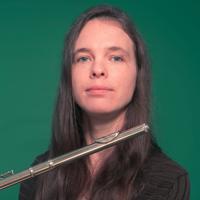The Voice in Neurodiversity Affirmative Music Therapy with Autistic People
Tuesday 23rd April 2024, 12:00 PM - 2:00 PM (London Time)
The Neurodiversity Paradigm challenges the concept of autism (and related neurological differences such as ADHD and dyspraxia) as a disorder or deficit, instead defining autism as a natural and normal part of human neurological diversity (neurodiversity). Under the neurodiversity paradigm, autism is considered as an aspect of identity, in the same way as gender or sexuality, and autistic forms of behaviour, communication and culture are valued in the same way as allistic (non-autistic) forms of behaviour, communication and culture. In recent years, the music therapy profession has begun to consider the application of the neurodiversity paradigm to music therapy practice, and an increasing amount of literature embracing this perspective has been published.
This lecture, delivered from a lived experience perspective, will begin with an explanation of the key concepts around neurodiversity, the neurodiversity paradigm, and some neurodiversity-informed theories within autism research, including a brief exploration of autistic communication and culture. We will look at ways to work musically from a neurodiversity-affirmative perspective with autistic people, whether therapeutically or within other forms of music-based work or teaching practice. Particular consideration will be given to the use of the voice with autistic people, both in terms of responding to the individual’s particular ways of using language, song and vocal sounds, and in terms of using one’s own voice (whether you identify as autistic or allistic), and other forms of music, to communicate respectfully and effectively with autistic people.
Hilary will speak about her own music therapy work with autistic people, which takes a collaborative approach with the client as much as possible, giving examples of how Hilary uses her voice and other forms of musical response in her therapeutic work.
Hilary Davies
Hilary Davies is a Health and Care Professions Council-registered Music Therapist, specialising in music therapy with autistic people.

Attend this course for as little as £22 as part of the Voice Professional Training CPD Award Scheme.
Learn MoreSorry, this is an archived short course...
We have plenty of upcoming short courses coming soon. See details of some of them below or look at the full list of short courses.


Tuesday 3rd March 2026
5:00 PM - 7:00 PM
(London Time)
Sex differences in VOICE!

Dr Richard Lissemore
This two-hour workshop, led by performer, articulatory phoneticist, and voice physiologist, Dr. Richard Lissemore, will examine in detail the role that biological sex plays in the perception and pedagogy of singing voices. We'll consider how parameters such as anatomy, physiology, articulation, resonance, and radiated acoustics influence the perceptions and pedagogical decision-making of singing teachers.

Wednesday 4th March 2026
1:00 PM - 2:00 PM
Wednesday 11th March 2026
1:00 PM - 2:00 PM
Wednesday 18th March 2026
1:00 PM - 2:00 PM
Wednesday 25th March 2026
1:00 PM - 2:00 PM
Wednesday 1st April 2026
1:00 PM - 2:00 PM
Wednesday 8th April 2026
1:00 PM - 2:00 PM
(London Time)
Learn to Coach RP and SSBE – a Certificate in Accent Coaching

Louisa Morgan
This six-week course is an opportunity to learn about both Received Pronunciation and Standard Southern British English. Rather than a course in learning how to speak RP/SSBE (there are many brilliant available courses for this already), this course is about learning how to coach it.

Thursday 5th March 2026
1:00 PM - 2:30 PM
Thursday 12th March 2026
1:00 PM - 2:30 PM
(London Time)
Acting Emotion: Perspectives from the Masters

Louisa Morgan
Stanislavski said, “our artistic emotions are, at first, as shy as wild animals and they hide in the depths of our souls.” Michael Chekhov said, our bodies should be like a “sensitive membrane, a kind of receiver and conveyor of the subtlest images, feelings, emotions and will impulses.” And Meisner said we should be “living truthfully under imaginary circumstances.” Join Louisa Morgan in this 2-part course as she explores a range of well-known acting practitioners to investigate what they believed (or believe) about emotion and how they approached it in their work. She'll compare their work to see where they align and where they diverge.
